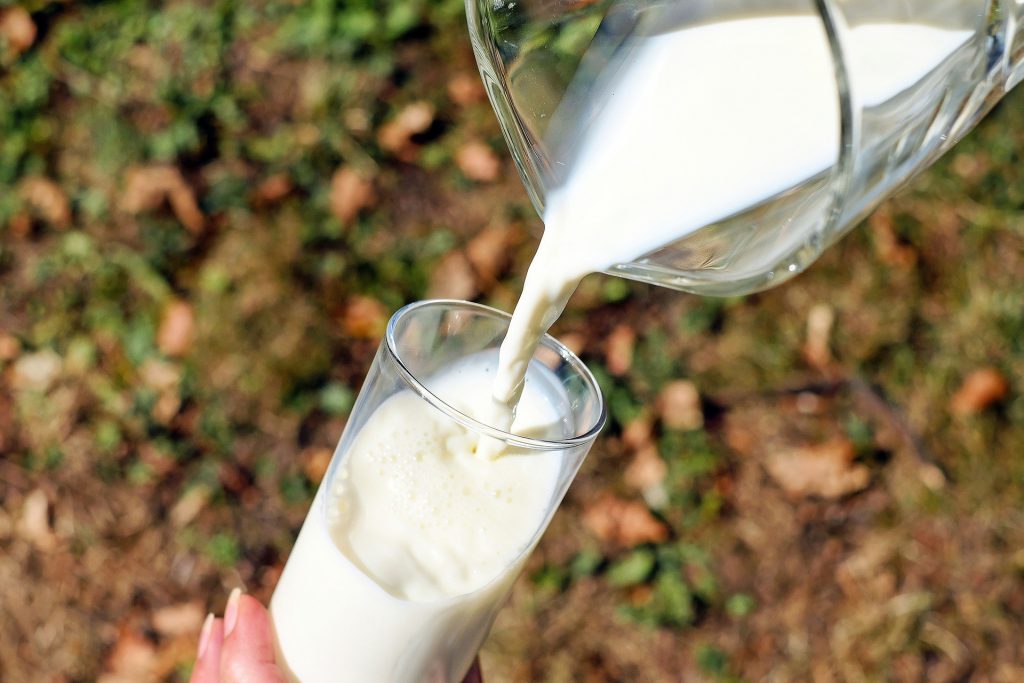
I’ve gone on kicks before about people being lactose intolerant after infancy, and I’ve had mixed reactions. I understand that some people really love milk, and I have been one of those people myself.
Being a naturally thin guy overall, milk, cheese, and yogurt were my go to foods for packing on the pounds. However, I saw many different side effects from going crazy with the whole milk. Yes, even the organic stuff. Although I still indulge in a little bit of pepper jack and feta cheese from time to time, it’s too good to give up completely. I want to share with you just what happened when I cut dairy from my diet.
Harmful Effects of Dairy
I wanted to start by giving you some background on dairy and I also wanted to share a few facts that will disprove a couple myths you have been fed all your life.
I mentioned when I discussed the paleo diet that a large portion of the world is lactose intolerant. In fact, I even went on to talk about the fact that we are the only species that consumes the milk of another species at any point. Yeah, that’s sort of weird.
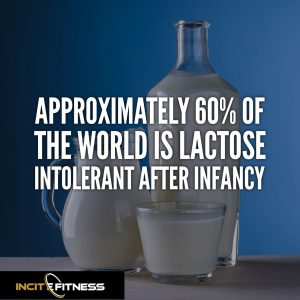
More facts…
- Dairy has been directly linked to prostate cancer through multiple medical studies.
- We are genetically unable to process dairy.
- The FDA has asked for a scientific investigation of claims made by milk producers using the “Got Milk” mustache ads.
- There is no evidence that dairy is actually good for your bones.
- The regions of the world with the lowest population density of osteoporosis actually have the lowest dairy intake. This also can be correlated to the fact that there is no evidence of dairy preventing osteoporosis.
I understand those quick facts may not be enough for you to cut out dairy. Therefore, I want to share with you my personal experience and happenings that I directly attribute to eliminating dairy.
What Happened When I Stopped Consuming Dairy
I know that some of these might be a stretch, and since my diet has become more healthy overall it may be somewhat unfair to attribute all of the changes I have seen lately to dairy. However, I do know that some of these have been very common when others have done the same thing, so I am going to share those as a direct result of limiting/cutting dairy from my diet.
The first thing that I noticed when I stopped drinking tons of milk was the clarity of my face. I often get stress breakouts, yes, but during times that I was not stressed I just couldn’t figure out why my skin was so broken out.

It turns out, milk and dairy products contain growth hormones and inflammatory substances that clog your pores and can cause acne. Time and time again people swear that cutting dairy from your diet is perhaps the best thing that you can do for your skin besides showering regularly.
Next, my chin slimmed up. There was a time where I had gained quite a bit of weight from pounding around 16-24 ounces of whole milk twice a day. While I still looked okay and managed to maintain my overall physique, I quickly learned that I carry fats in my chin.
My jawline was atrocious (at least in my own personal opinion) and my normally slender face started to look like a soccer ball. That may be an exaggeration but you get the point. Double chins aren’t an ideal look for anyone, so I’m betting that this is inspiration to cut the milk.
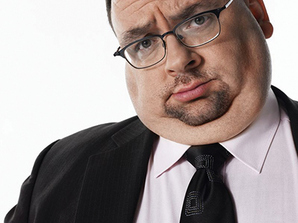
In addition to the double chin, I was starting to see the fats in my overall muscle definition. I looked much more “puffy” for lack of a better word. That has never been what I strive for in terms of muscle definition so I knew I needed to do something to get back to being more cut.
Third, the phlegm/nasal problems I always have after eating or just in general eased up significantly. Those of you that know me probably know that I broke my nose when I was 14 and had to have reconstructive surgery to repair it. That left me with a much smaller than normal nostril situation so any excess nasal issues usually lead to recurring sinus infections.
Dairy has been proven to thicken phlegm that lines the throat and sinuses. Now while dairy does not actually generate phlegm, it doesn’t help that it’s thicker. If you have ever noticed after a glass of milk that your throat feels funny or feel like you need to cough, this is probably why.
Cutting out the milk has eliminated quite a few sinus infections and I haven’t experienced the nasty throat/nose feeling after eating since I made this change.
Fourth, I am far more energetic throughout the day. I know I have said this stems from my overall diet shift but I truly believe that removing dairy from the diet has been a major contributor. Everything about milk, even drinking it, seems sluggish to me.
I don’t know why that is, and I don’t have a ton of scientific evidence stating that this is the cause for my increase in energy. However, I have read articles like this written by MD’s that makes me believe it’s at least a possibility that I have more energy because of this diet change.
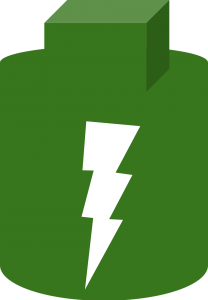
If those reasons don’t influence you to cut dairy from your diet that’s totally fine. It is a totally objective decision left completely up to you. However, I encourage you to give it a shot like most things I talk about. If you feel better, awesome, get rid of the dairy! If not, also awesome, keep chugging away!
If you do try it, at least give it a solid 1 month attempt so that you can really see results. In order for your digestive system to adjust and your body to start to acclimate you need around 30 days of a diet adjustment in order to see true effects.
Some of you may be concerned about key nutrients that milk does indeed provide. These are Calcium and Vitamin D. I do have a solution for that and I still manage to get all the recommended vitamins and minerals that you need throughout the day.
Where Do I Get The Nutrients That Milk Does Provide?
The main source of a lot of these nutrients are from almond milk. Since many raw, unsweetened, organic almond milks have been fortified commercially to include a lot of the nutrients that dairy milk contains you can receive almost everything you need just from drinking almond milk a couple times a day.
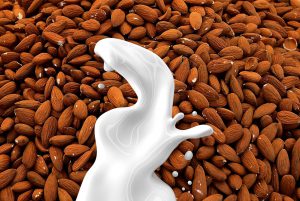
The only area that almond milk is lacking and does not help with is protein. However, if you track your protein properly and are consuming your individually recommended amount per day (based on your weight/fitness goals) then you should have no problem receiving protein from other sources. Load up on some broccoli it will do wonders.
If you are truly concerned with Calcium and Vitamin D I suggest supplementation. I have talked a bit about how the sun helps contribute to Vitamin D production and helps you to resist deficiency when I talked about enjoying the great outdoors in this article. However, I know we don’t always get what we need so when I feel I may be coming up short on the Vitamin D I find a solid supplement for it and that generally does the trick.
If you have any experience with cutting dairy from your diet please share in the comments below. Good, bad, whatever your experience I’d love to hear about it. If you have any questions for me about my experience feel free to ask those as well, I’m an open book as always so I will most certainly respond.
Thanks for reading, folks! Don’t forget to follow me on Instagram @incite.fitness

Interesting article. I am working out a lot and focusing my diet on proteins. I was wondering how to replace proteins from cheese if I completely skip dairy products?
Hey Juan,
I appreciate you reading. Interesting question and I’m actually glad you asked.
Most cheeses average around 7-10 g/protein per serving. This is quite a lot. However, there are tons of ways out there to replace that protein without consuming dairy. Granted, it may take a bit larger serving of something else to get back what cheese offers you but it’s easily done.
The easiest way is just eating some chicken, turkey, or some other form of meat. However, I have a lot of friends that are completely vegetarian so I’ll go that route and stick to vegetables.
I’ll leave you with a few quick options:
Soy Beans-28 g/protein per cup.
Edamame- 16.9 g/protein per cup.
Broccoli- 2.6 g/protein per cup.
Asparagus- 2.4 g/protein per 100g.
These are just my favorites. I devour Edamame and Broccoli quite regularly. Also, asparagus is great just roasted or steamed with some lemon juice and light sea salt.
Hope that helps!
Dalton